

And How Do We Use Them To Get Results.
A calorie is the amount of energy required to raise the temperature of one kilo of water by one degree. (not really important but thought i'd include it)
So when we measure the number of calories in certain foods, we’re trying to find the amount of energy it has in it.
Think Of Them As Your Body’s Fuel Tank
Think of calories as the fuel your body needs to run, just like a car needs gasoline. Everything you eat and drink has calories, and your body burns them to give you energy to do everything – from breathing and walking to working ouImaget or even just thinking.
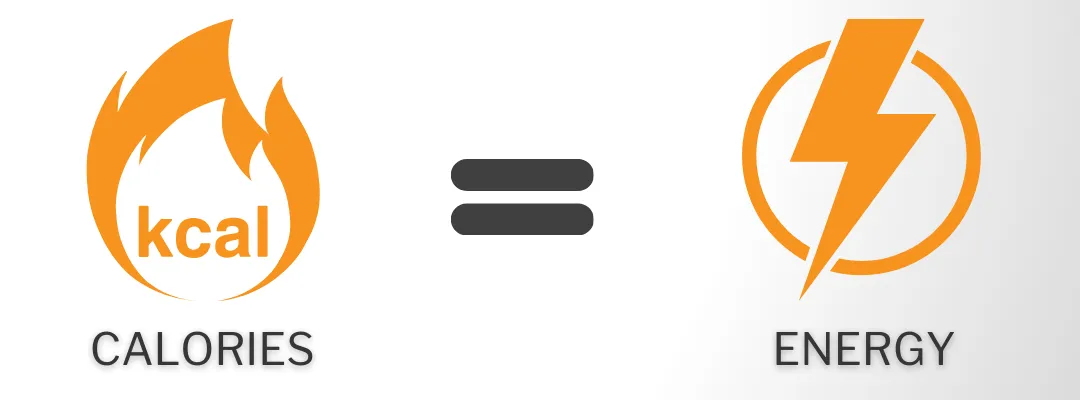
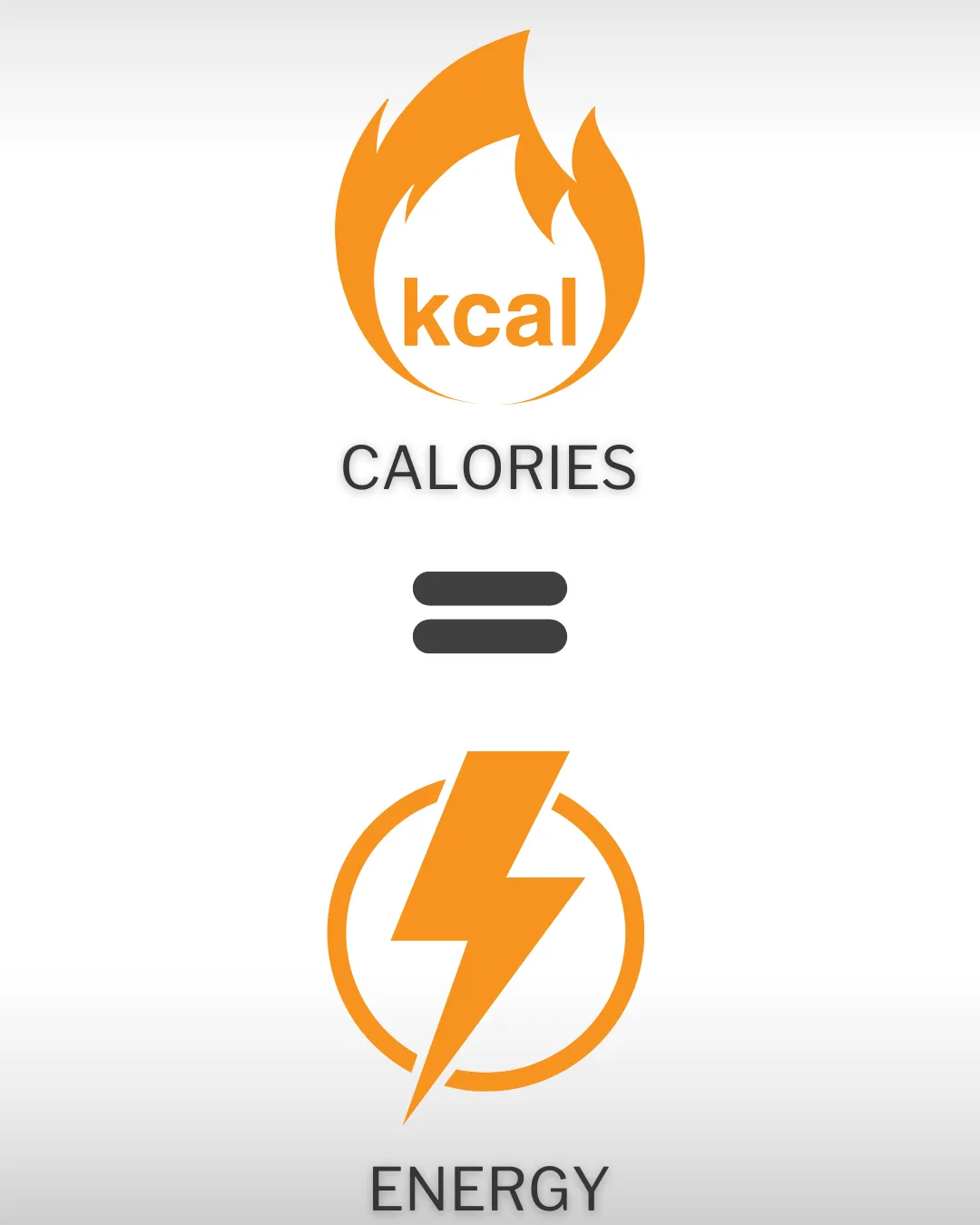
Why Calories Cause Weight Gain or Loss
The balance between how many calories you eat and how many you burn determines whether you gain, lose, or maintain weight.
Here’s how it works:
1. Calorie Surplus (Weight Gain)
If you eat more calories than your body needs or burns, the extra calories get stored as fat – kind of like putting gas in your car’s tank when it’s already full. This causes your body to store the extra energy, and over time, this leads to weight gain.
2. Calorie Deficit (Weight Loss)
If you burn more calories than you eat, your body needs to tap into those fat stores for energy – kind of like using the extra fuel you’ve stored away. This leads to fat loss over time, because your body is using up that stored energy.
It’s All About Balance!
To keep your weight steady, you need to balance how much fuel (calories) you’re taking in with how much you’re burning through daily activities and exercise.
Your TDEE + BMR from yesterday.
Eat more calories than you burn = weight gain (because your body stores the extra energy as fat).
Eat fewer calories than you burn = weight loss (because your body uses stored fat for energy).
So, calories are just units of energy, and whether you gain or lose fat depends on whether you’re taking in more or less than your body burns!
"I'm eating healthy and putting weight on."
Because you're still eating more calories than you're burning. There is no way around this.
A SURPLUS OF CALORIES = WEIGHT GAIN
This is why... even you're eating nothing but organic broccoli and chicken... going to the gym everyday and sleeping 8 hours every night.... you can still gain weight.
If you're in a calorie surplus, you WILL gain weight.
In the same way... you can eat nothing but lollies and chocolate... sit on the lounge all day... and lose weight IF you're in a deficit (you'll feel terrible, but you'll still lose weight)
We WILL gain weight when we eat MORE calories than we burn.
Weight loss can NOT happen if we're in a calorie surplus.
If you’re not seeing progress from your efforts, it is because your energy in vs energy out is in some way out of whack, and you’re not in a calorie deficit.
That’s why diets in general suck.
Take Keto for example - You are cutting out carbs almost entirely to achieve a calorie deficit. All good for maybe a very short period, but we're kidding yourself if we think we can build a lifestyle around.
So how do we eat the right amount of calories???
It comes down to macronutrients.

When you hear the word 'macros'... it's an abbreviation of macronutrients.
Proteins, carbohydrates and fats are called macronutrients because we need a lot of them to survive (in relation to micronutrients).
Micronutrients are vitamins and minerals.
Within nutrient rich foods like fruits, meats, vegetables, and legumes. Your body needs them in small quantities hence the word MICRO.
CALORIE CONTENT OF PROTEIN
1 gram of Protein = 4 calories
CALORIE CONTENT OF FAT
1 gram of Fats = 9 calories
CALORIE CONTENT OF CARBOHYDRATES
1 gram of Carbohydrates = 4 calories
Every single thing we eat is going to contain macronutrients.
Why are the 3 macronutrients important?
The magic happens when you combine protein, carbs, and fats.
They all play different roles, but together, they’re the dream team for:
Energy: Carbs give you fast energy, fats provide long-lasting fuel, and protein helps your muscles stay strong and recover.
Fullness: Protein and fats help you feel satisfied, while fiber-rich carbs keep you full and your digestion running smoothly.
Nourishment: Each one provides essential nutrients your body needs to function properly, whether it’s building muscle, supporting brain function, or keeping your heart healthy.
The Takeaway:
Don’t fear any of these nutrients – they’re all essential!
The key is balance.
PROTEIN
Protein: Your Body’s Building Blocks and Repair Crew
Let’s dive into protein – the MVP of your diet!
Whether we're trying to tone up or just trying to stay healthy, protein is KING.
It’s not just about bulking up; protein helps with everything from building muscles (toning), to healing cuts and keeping you feeling full.
Let’s get into why protein is so awesome, and how to pick the right kinds.
Why Protein Matters
Protein is like the construction crew for your body.
It helps build and repair everything – from your muscles to your skin and even your hair!
Here is why we need it:
Builds Muscle:
Protein swoops in to help repair and build strong muscles (toning) and increases your metabolism by doing so.
Boosts recovery:
Not just for muscles, protein also helps your body heal wounds, make enzymes, and create hormones.
Keeps you satiated (stay full):
Protein helps you feel satisfied after meals, so you’re less likely to overeat or reach for snacks.
Supports metabolism:
Protein can actually help boost your metabolism, helping you burn more calories even when you're just chilling!
Good Proteins vs. Not-So-Great Proteins
Like everything else, there are great proteins and ones you should enjoy in moderation.
Let’s break it down:
The Good Guys (Lean and High-Quality Proteins)
Lean Meats: These give you all the protein power without the extra fat.
Find them in: Chicken breast, turkey, lean beef, and pork tenderloin.
Fish & Seafood: High in protein and packed with heart-healthy omega-3s.
Find them in: Salmon, tuna, mackerel, shrimp, and cod.
Eggs: The protein powerhouse! Plus, they’re super versatile.
Find them in: Scrambled, boiled, fried – however you like your eggs!
Dairy: Choose low-fat or non-fat dairy for a protein boost without too much extra fat.
Find them in: Greek yogurt, cottage cheese, milk, and cheese.
Plant-Based Proteins: Perfect for vegetarians, vegans, or anyone looking to switch it up!
These are great for your heart and overall health.
Find them in: Lentils, chickpeas, tofu, tempeh, edamame, quinoa, and black beans.
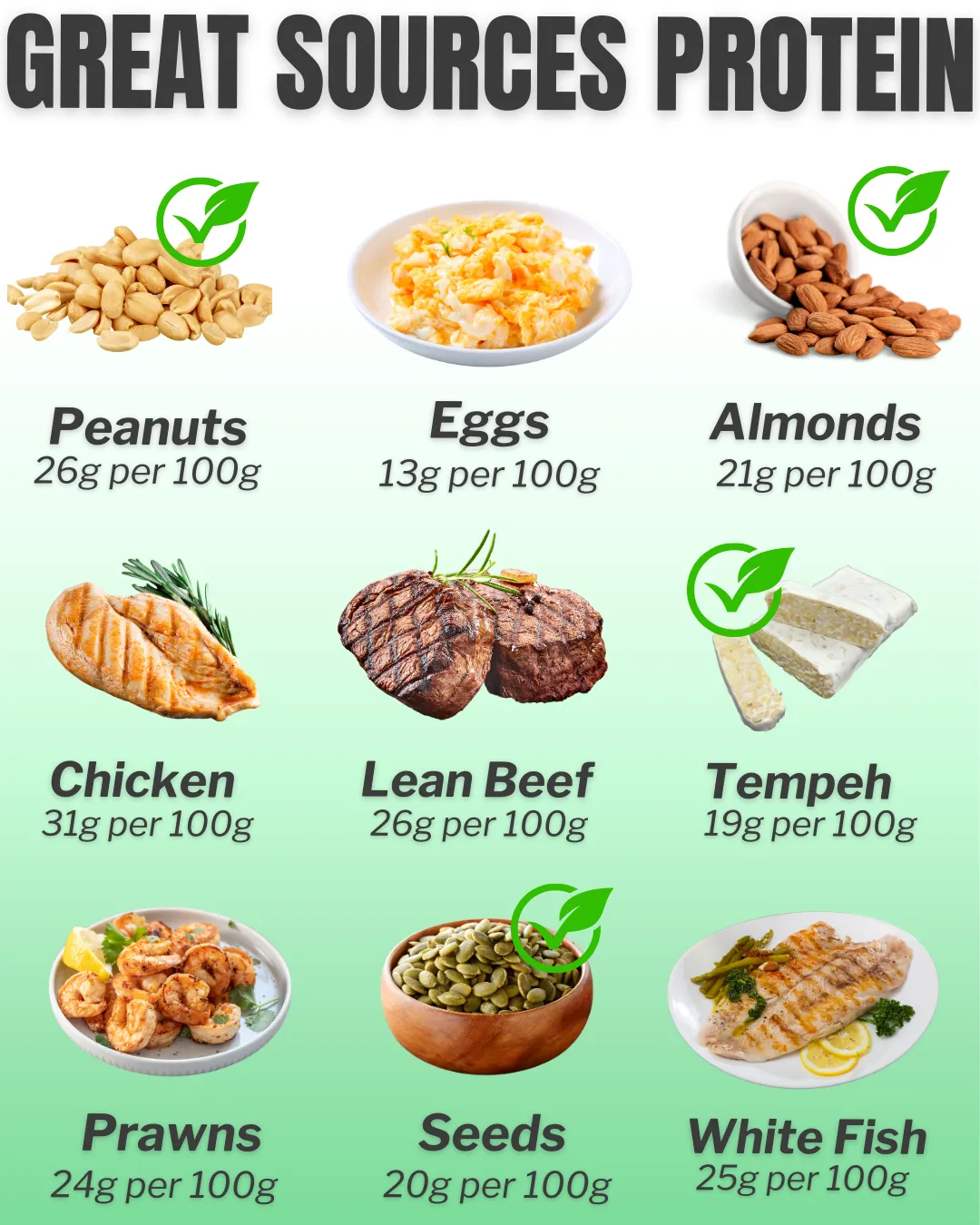
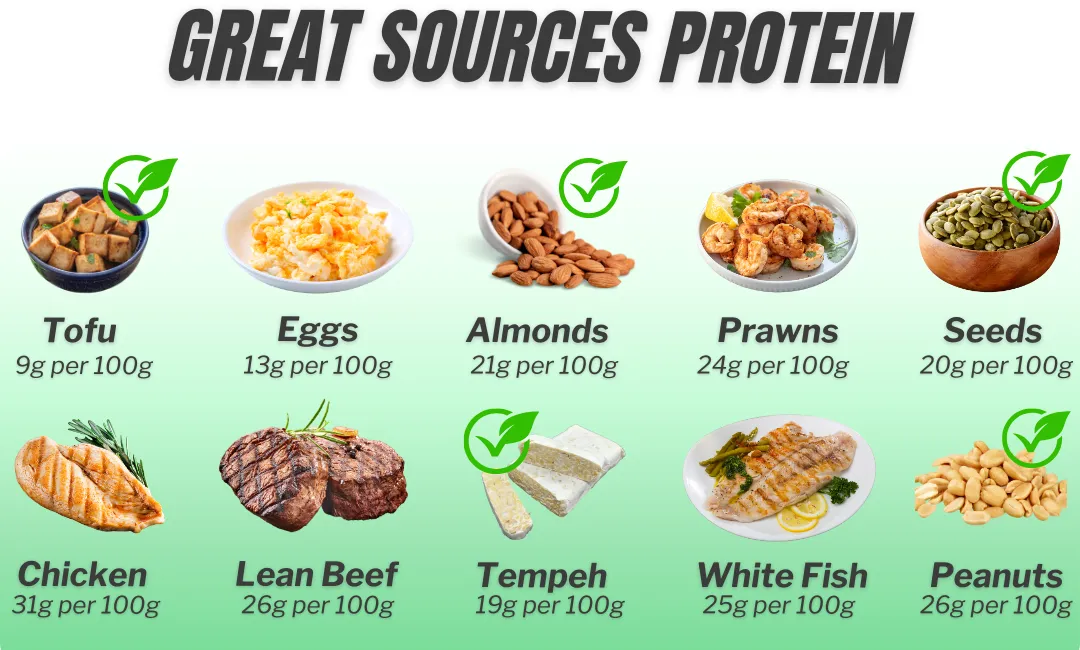
The 'Not-So-Good Protein Sources (Processed Proteins)
Processed Meats:
These might taste great, but they come with a side of sodium and preservatives, which aren’t so great for your health.
Find them in: Sausages, bacon, deli meats, and hot dogs.
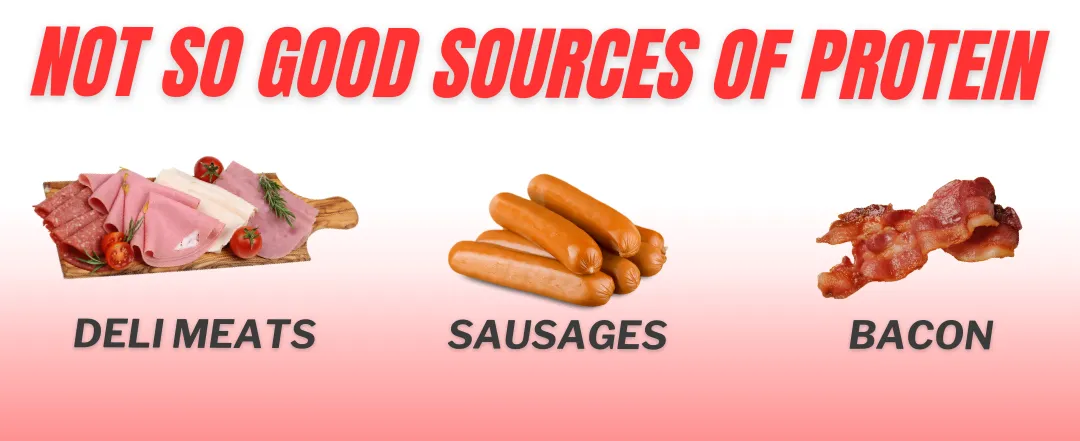
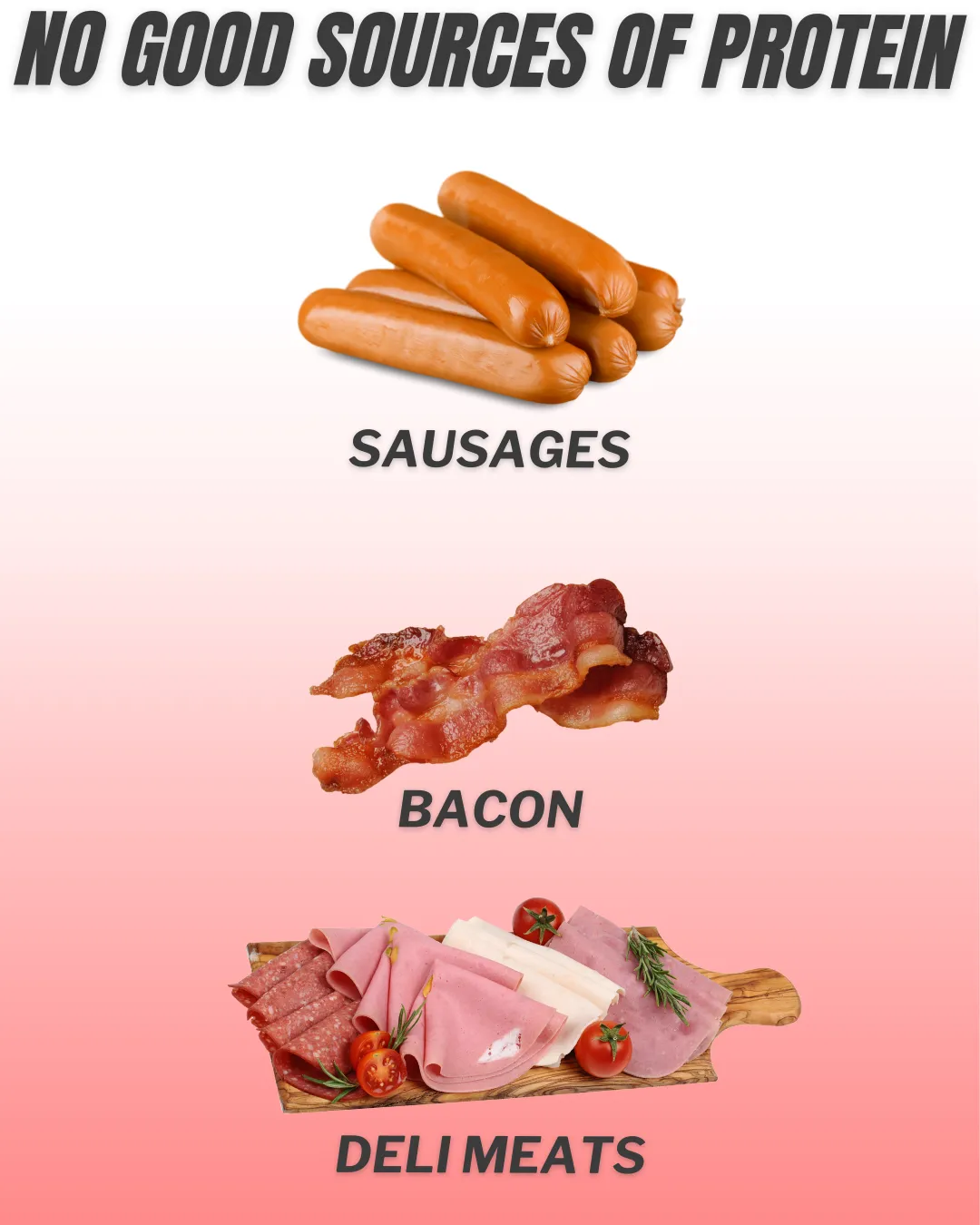
The key relationship with Fat Loss & Protein is:
1. Protein will build & keep lean muscle and increase your basal metabolic rate (metabolism).
2. It will burn more calories just to break the actual protein down into what our body needs.
3. It keeps you satiated! Keep you fuller for longer meaning it's easy to regulate cravings and appetite.
In Summary: Protein is KING
What it does:
Protein is your body’s construction worker, building and repairing muscles, tissues, skin, and even your hair!
It’s also great for keeping you full and boosting your metabolism.
Where to get it:
Look for lean meats (chicken, turkey), fish, eggs, dairy, and plant-based proteins like beans, lentils, tofu, and quinoa.
Why it matters:
Whether you’re working out or just living your daily life, protein helps you recover faster, stay strong, and keep that energy up all day long.
CARBOHYDRATES
Your Body’s Preferred Power Source
Let’s talk carbs!
They’ve been through a lot – one minute they’re the hero, the next they’re the villain.
But here’s the truth: carbs are your body’s favorite fuel.
They’re like the gasoline that keeps your engine running smoothly. The key is knowing the good carbs from the not-so-great ones.
So, here’s how to make carbs your best workout buddy and energy booster.
Why Carbs Matter
Carbs are your body’s go-to source for quick and easy energy.
When you eat carbs, they’re broken down into glucose.
(sugar), which fuels everything from your workouts to brainpower.
Here’s what else they do:
Provide fast energy: Carbs give you that quick energy boost you need for activities like sprinting, lifting, or even just getting through a busy day.
Feed your brain: Your brain runs almost exclusively on glucose, so carbs help keep you focused, sharp, and ready for action.
Supports digestion: Many good carbs are packed with fiber, which keeps your digestion running like clockwork and helps you feel full.
Good Carbs vs. Bad Carbs
Not all carbs are created equal, though! Some work like a well-oiled machine, while others crash and burn. Let’s break it down:
The Good Guys (Complex Carbs)
Whole Grains: These are your long-lasting energy sources.
They’re rich in fiber, vitamins, and minerals.
Find them in: Brown rice, quinoa, oats, whole wheat bread, and whole-grain pasta.
Fruits give you natural sugar, plus a ton of fiber and antioxidants to keep you feeling great.
Find them in: Berries, apples, bananas, oranges, and basically anything that grows on a tree or bush.
Vegetables: Low in calories but packed with fiber, vitamins, and energy-boosting goodness.
Find them in: Sweet potatoes, broccoli, carrots, spinach, and more.
Legumes: These are beans, peas, and lentils, which are rich in fiber and protein.
Find them in: Chickpeas, black beans, lentils, and kidney beans.
Fiber-Rich Foods: Foods that are high in fiber help slow down digestion, meaning you get steady energy over time, rather than a quick sugar high.
Find them in: Vegetables, whole grains, and legumes.
Carbs for Energy
Carbs come in two forms: simple and complex.
Simple carbs (like sugary snacks) hit your system fast, giving you an energy spike followed by an energy crash.
Complex carbs (like whole grains and vegetables) are like a slow-burning campfire, giving you steady energy throughout the day.
They take longer to digest, keeping you full and fuelled for longer.
What happens when we eat Carbohydrates?
When you eat carbohydrates, your body breaks them down into glucose (sugar), which enters the bloodstream. This glucose (carbs) is used for immediate energy or stored as glycogen in the liver and muscles for later use.
WHO CARES RIGHT?
I get it... i'll get to the point:
Our body converts the excess carbs to fat.
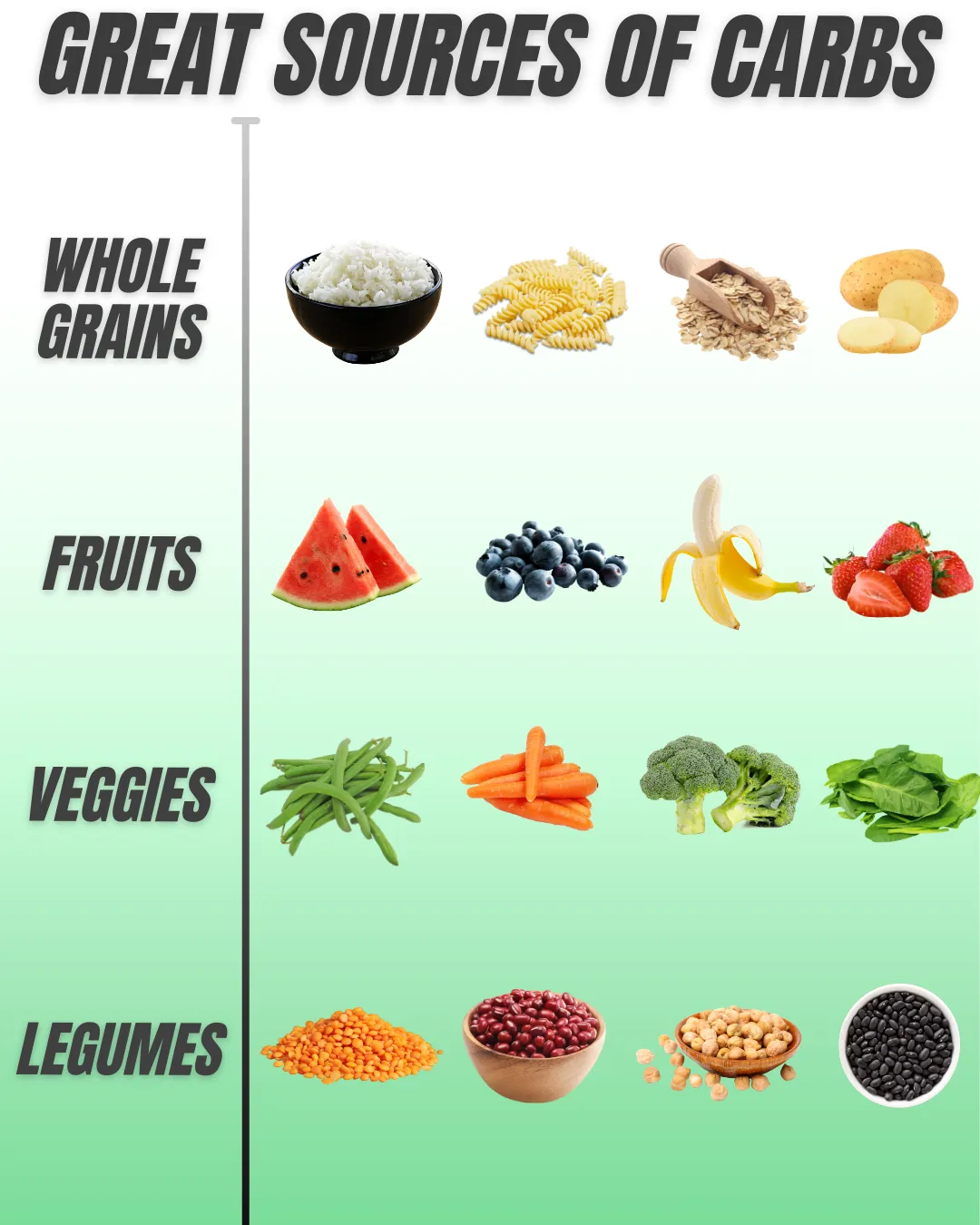
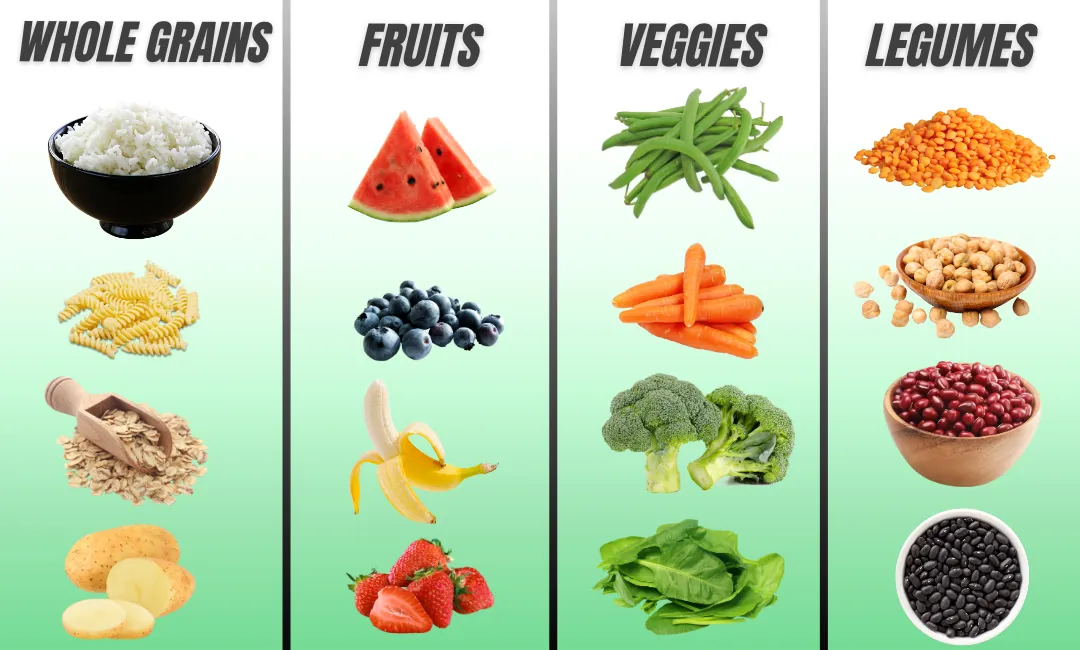
The Bad Guys (Simple Carbs)
Refined Carbs: These are the carbs that get stripped of their fiber and nutrients during processing. They give you a quick spike of energy but leave you crashing later.
Find them in: White bread, pastries, sugary cereals, white rice, and anything made with refined flour.
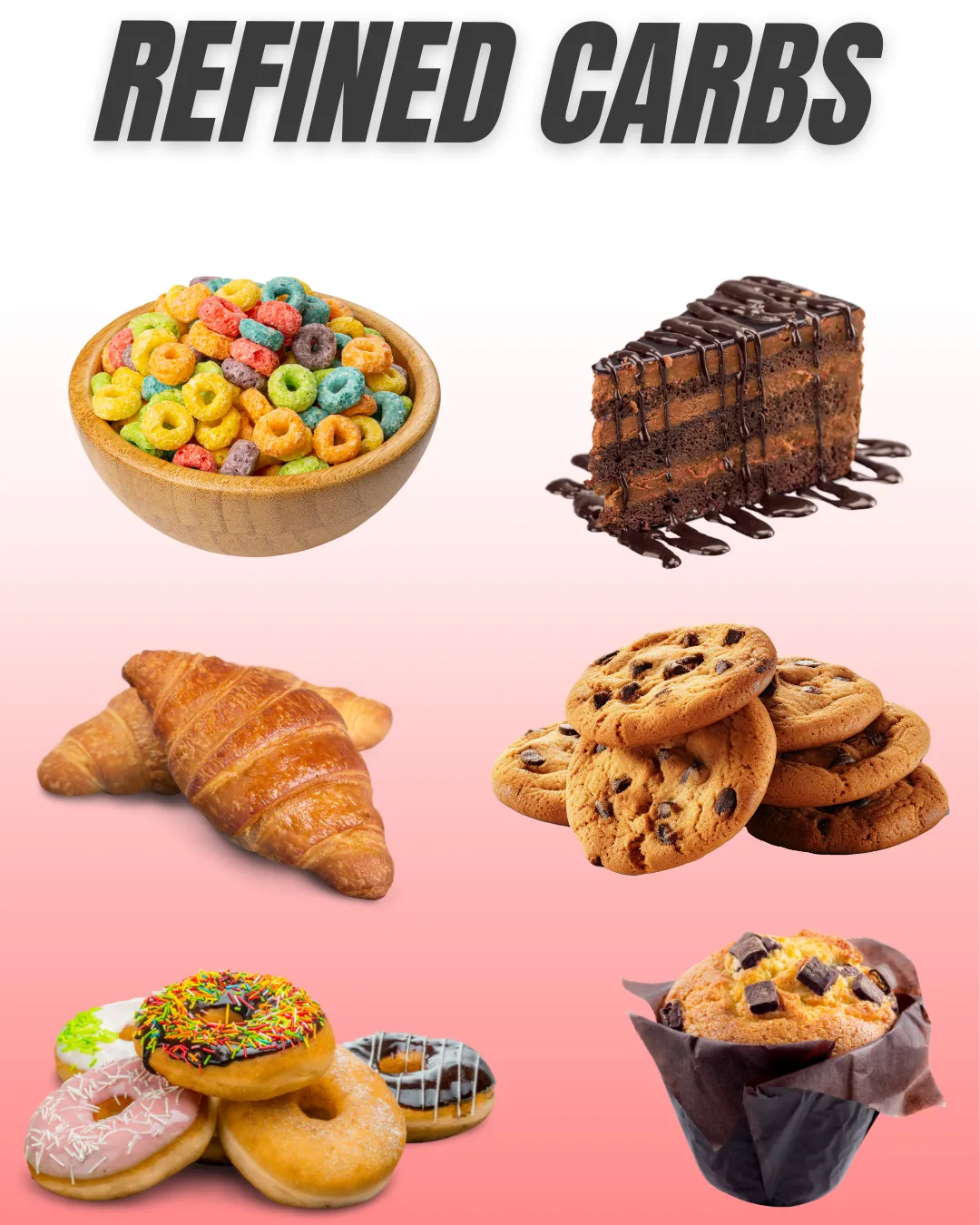
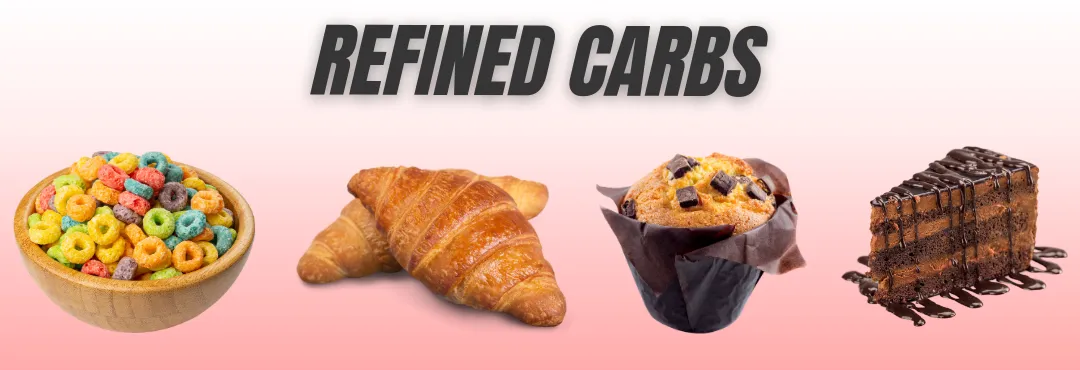
Sugary Treats: Candy, soda, and desserts are loaded with added sugars that cause blood sugar spikes, leaving you tired and craving more.
Find them in: Sweets, soft drinks, and processed snacks.
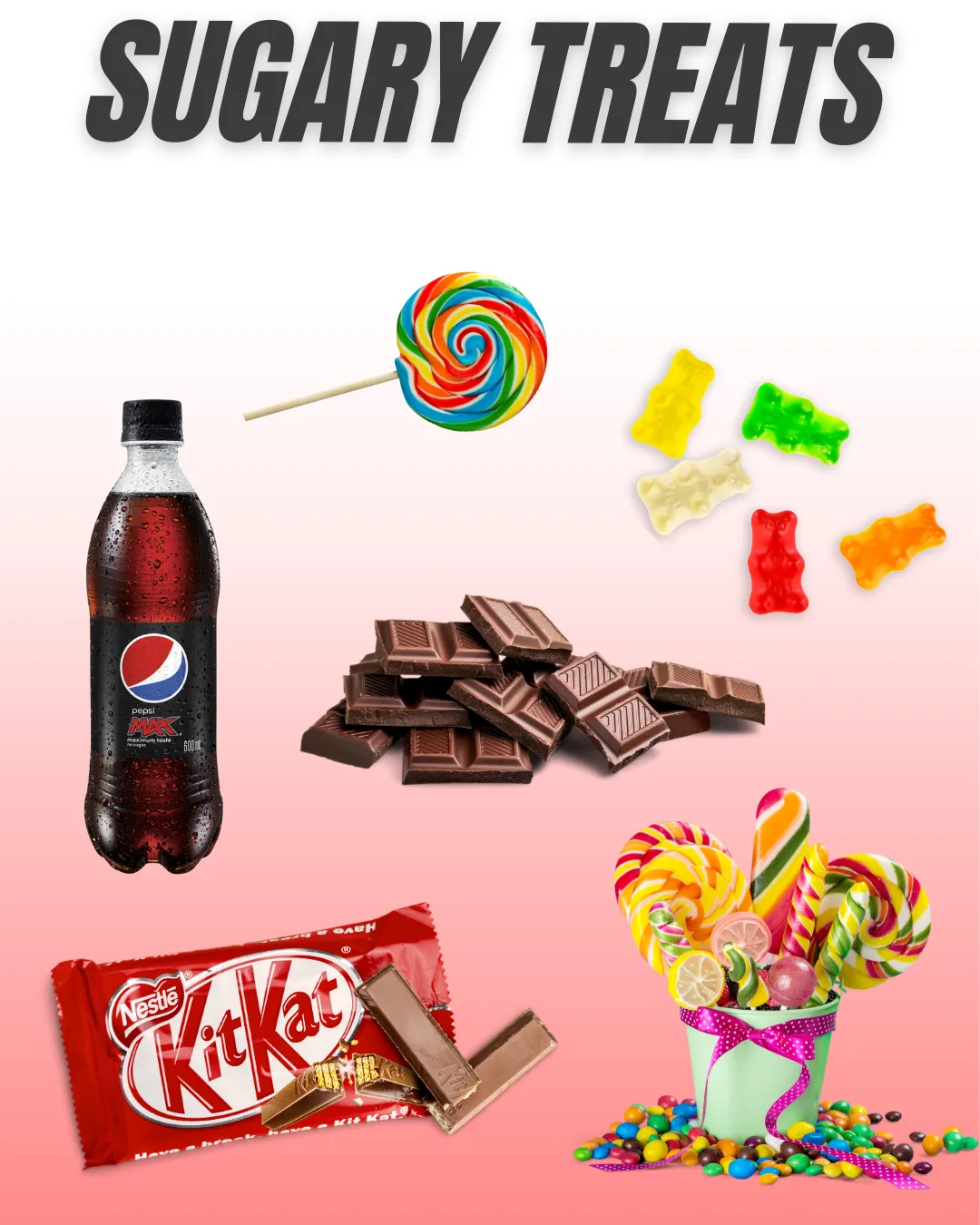
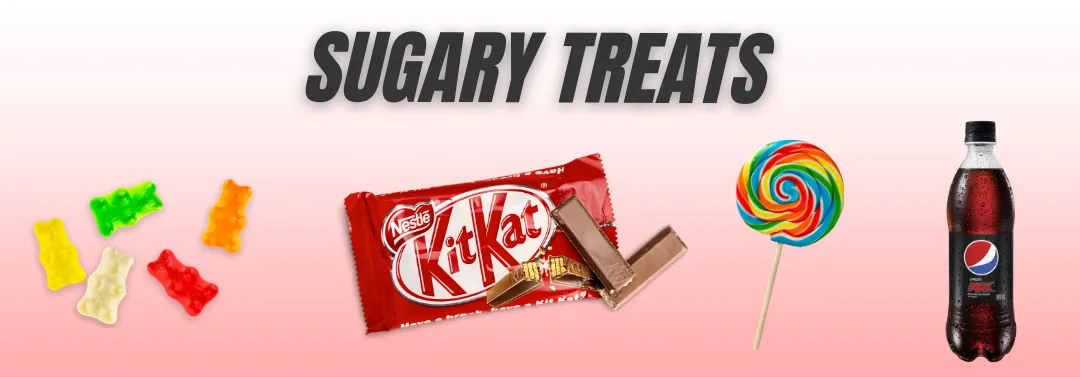
Carbohydrate Summary:
Your Body’s Preferred Energy Source
What they do:
Carbs are like the gasoline for your body.
They give you quick energy when you need it and help fuel your brain, muscles, and nervous system.
Where to get them:
Choose complex carbs like whole grains (brown rice, oats, quinoa), fruits, vegetables, and legumes.
They provide steady energy and are packed with fiber and nutrients.
Why it matters:
Carbs are your body’s go-to for energy, especially for workouts, mental focus, and daily activities.
They help you feel energized, focused, and ready to take on the day – just make sure you’re picking the right kinds!
FATS
Alright, let’s talk fat!
No need to freak out – fat is your friend, not your enemy. In fact, it’s one of the most important nutrients your body needs, even though it often gets a bad rap.
Fat for Energy
Fats are like that trusty slow cooker in your kitchen – they release energy slowly and over time, keeping you feeling fuller for longer.
This means they help balance your energy, so you’re not constantly running to the pantry for a snack.
Here’s the scoop:
Why Fats Matter
Fats do a lot more than you might think!
They fuel your body:
Think of fat as your long-distance energy source. While carbs are the sprinters giving you a quick burst of energy, fat is the marathon runner, releasing energy slowly and steadily.
Build cells:
Fat is crucial for making cell membranes – it’s basically the glue that holds your cells together and keeps them functioning.
Protect your organs:
Fats act like a cushion for your organs, keeping them safe and snug.
Help absorb vitamins:
Vitamins A, D, E, and K...they need fat to be absorbed by your body, so if you want glowing skin, strong bones, and good vision, fat’s got your back.
Good Fats vs. Bad Fats
Not all fats are created equal.
Let’s break it down:
The Good Guys (Healthy Fats)
Unsaturated Fats:
These are your heart’s best friend.
They come in two flavours: monounsaturated and polyunsaturated.
Find them in: Avocados, olive oil, nuts, seeds, and fatty fish (hello, omega-3s!).
Why they rock: They help lower bad cholesterol, reduce inflammation, and keep your heart ticking like a finely tuned engine.
Omega-3s: These superstar fats, found in fish like salmon and walnuts, are particularly good for your brain and help fight inflammation.

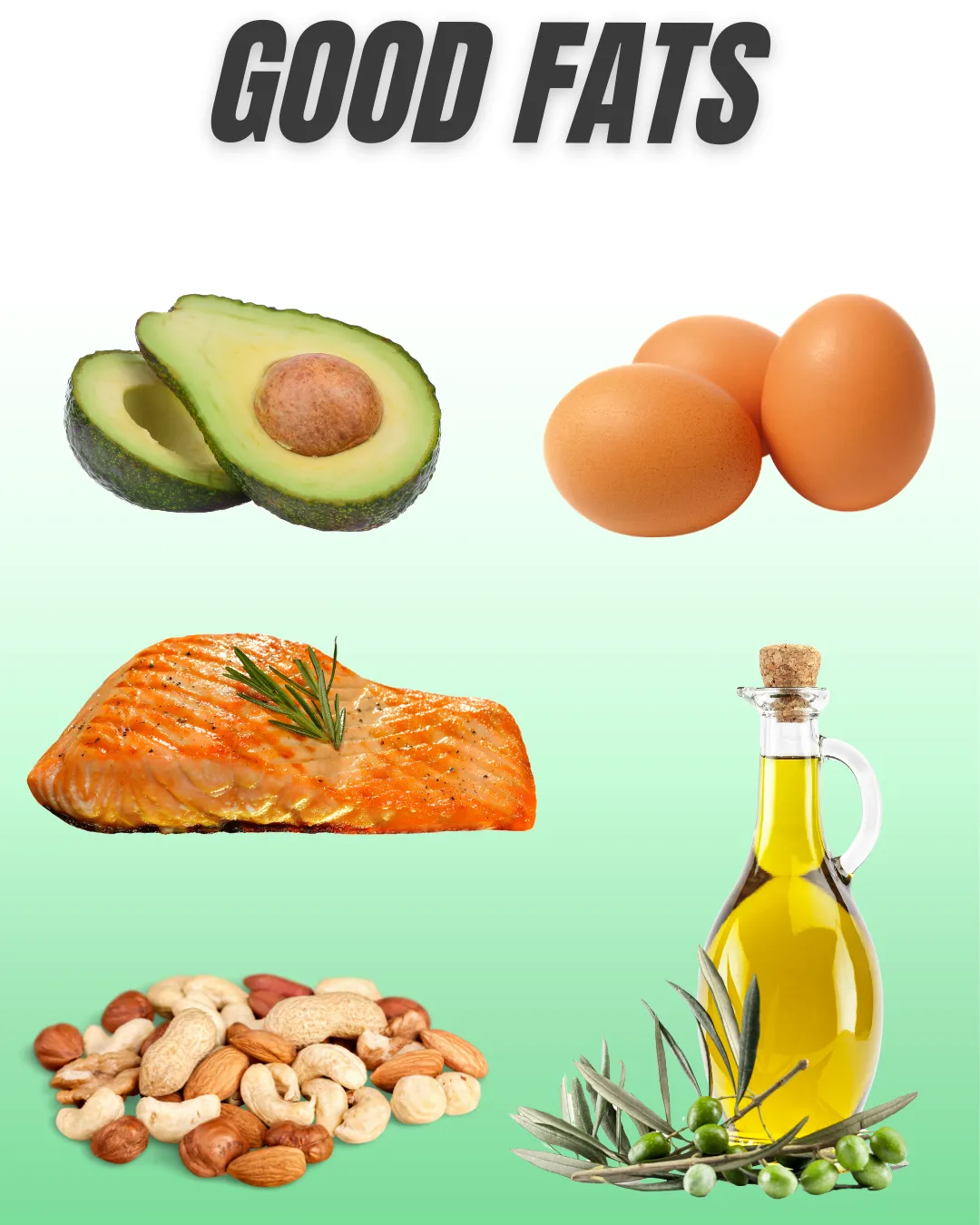
The Bad Guys (Unhealthy Fats)
Saturated Fats:
These are okay in small doses, but too much can raise your bad cholesterol.
Think of them as the guest that’s cool in moderation but overstays their welcome.
Find them in: Butter, cheese, processed meat & foods.
Trans Fats:
These are the villains of the fat world.
They’re artificially made to give processed foods a longer shelf life, but they also mess with your cholesterol, heart, and overall health.
Find them in: Fried foods, baked goods, and margarines. Avoid these whenever you can!
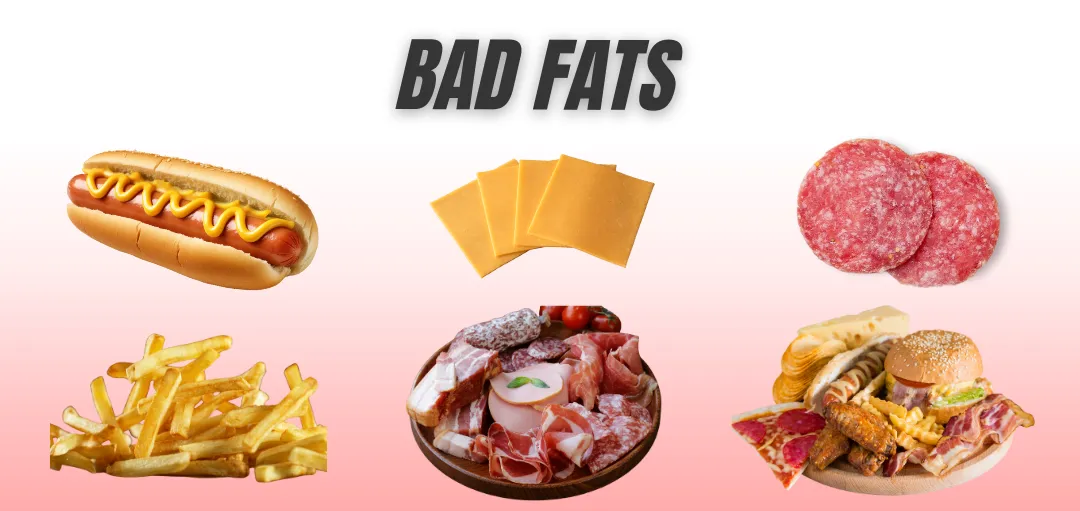
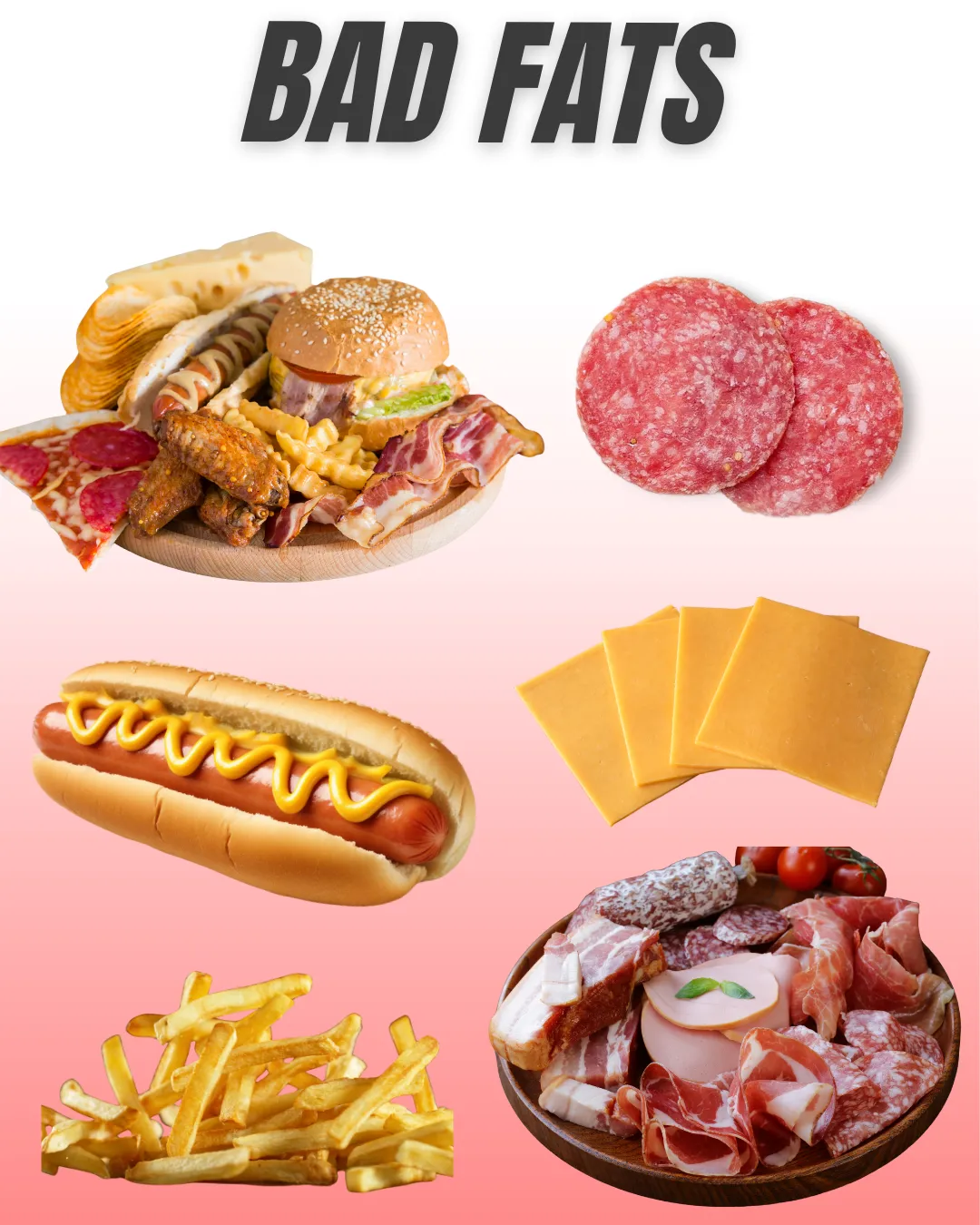
The Takeaway
Fats aren’t the bad guys – they’re just misunderstood!
The key is choosing the right ones.
Embrace healthy fats like those in avocados and nuts, and give trans fats the boot.
Keep fats as part of a balanced diet, and your body will thank you with steady energy, a happy heart, and strong cells.
